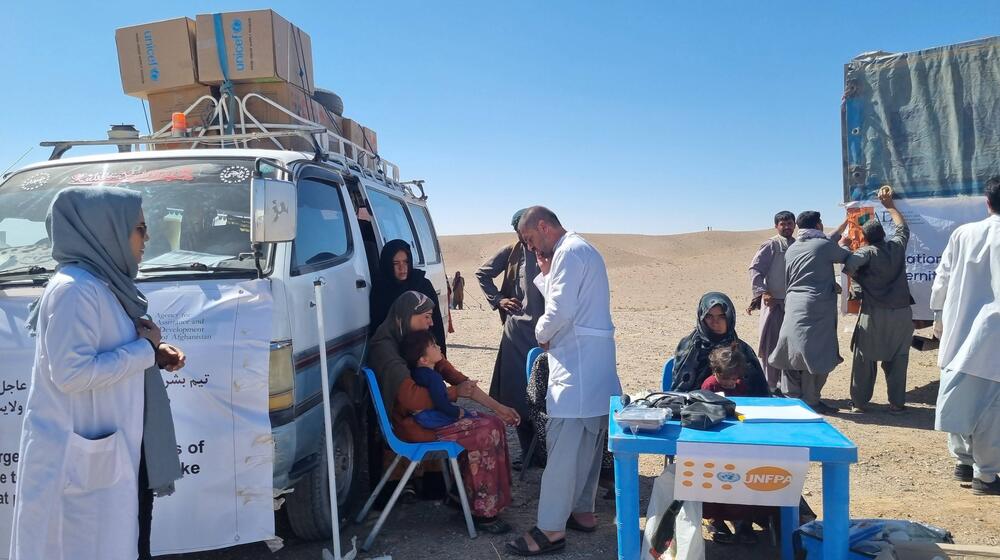News
Afghanistan quake leaves most vulnerable – women and girls – in dire situation
- 11 October 2023
News
HERAT, Afghanistan – More than 12,000 people have been impacted by a 6.3-magnitude earthquake which struck on the morning of 7 October, with most of the severely injured believed to be women and children.
UNFPA, together with local authorities and humanitarian actors, has rushed humanitarian supplies to the affected area, which continues to experience aftershocks.
“UNFPA is on the ground providing life-saving assistance to survivors of the devastating earthquake. We have seen in the local hospital a lot of women who require medical treatment, including maternal care and psychosocial support. UNFPA is here to ensure that they will receive appropriate services, especially for safe births,” said Jaime Nadal Roig, UNFPA’s representative in Afghanistan.
Women and girls disproportionately affected
Most of those who died were women and children because they were in their houses while men were out to work.
Displaced people are sheltering in abandoned buildings, makeshift shelters and tents, with some areas seeing every single home flattened by the disaster.
Women-headed households are particularly vulnerable, with protection needs as well as challenges seeking and obtaining humanitarian assistance.

Health teams and supplies deployed
Of the affected population, it is estimated that 3,028 are women of reproductive age, 1,414 are adolescent girls 10 to 19 years old, and 183 are likely to be currently pregnant and in need of midwifery care.
UNFPA has deployed seven mobile health teams to quake-affected areas in Jibhrail, Zindajan and Shindani districts. Staff have also been deployed to the Herat Provincial Hospital, where survivors are being treated, and counsellors have arrived to provide psychosocial support services in temporary shelters.
Dignity kits, containing hygiene supplies such as soap, underwear and menstrual pads, are also being distributed, with further distribution of blankets, tarpaulin, and supplies for safe childbirth and for postpartum mothers and newborns also planned.
“We need hygiene kits, clothes and footwear because we lost everything when our homes were reduced into rubble,” said one woman, sheltering at a medical school within the Herat Provincial Hospital grounds.